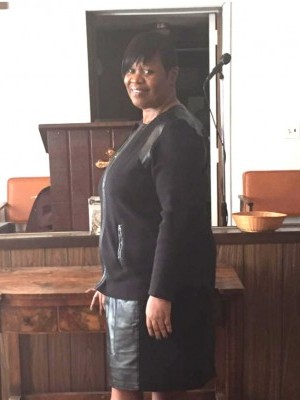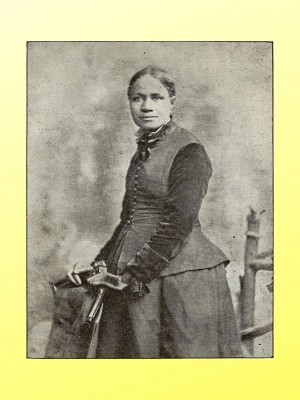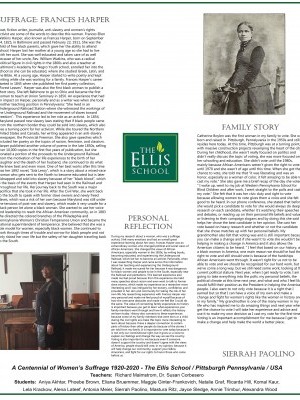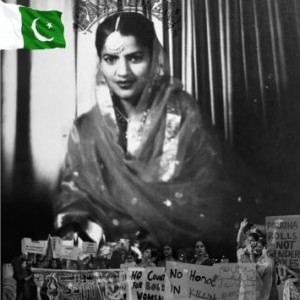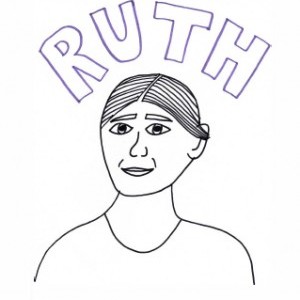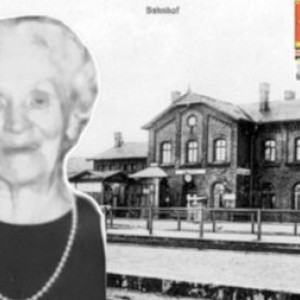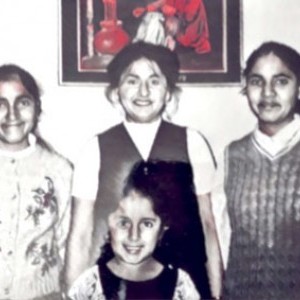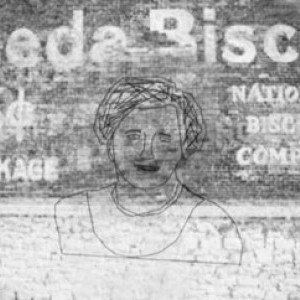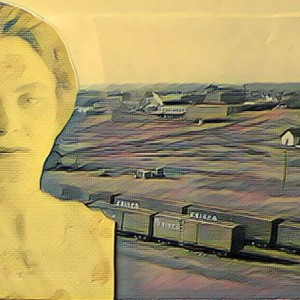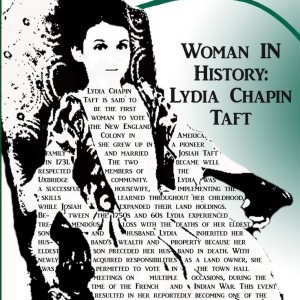Sierrah Paolino
The Ellis School | Pittsburgh, PA | 11th Grade
Inspirational Family Member
Catherine Boylen
Catherine Boylen was the first woman in my family to vote. She was born and raised in Pittsburgh, Pennsylvania in the 1950s and still resides here today. At this time, Pittsburgh was at a turning point, with massive construction projects revamping the heart of the city.
During her childhood, she wasn’t really focused on politics and didn’t really discuss the topic of voting, she was more focused on her schooling and education. She didn’t vote until the 1980s, mainly because African-Americans weren’t given the right to vote until 1970 and she wasn’t of age until this time. When she got the chance to vote, she told me that: “it was liberating and was an honor, especially as a woman of color, it felt amazing to be able to cast my vote.” She also gave me a brief recap of the day she voted, “ I woke up, went to my job at Western Pennsylvania School for Blind Children and after work, I went straight to the polls and cast my vote.” She felt that it was her civic duty and right to vote because allowing women to vote gives them a voice and she felt good to be heard. In our phone conference, she stated that before she would pick a candidate to vote for she would always do deep research on each candidate, whether it’s watching their speeches and debates, or reading up on their personal life beliefs and values, or listening to their campaign slogans and by doing this she said it helps her chose the best candidate in her opinion. She cast her vote based on heavy research and whether or not the candidate that she chose matches up with her personal beliefs. My grandmother also felt that voting was and is still important because you can make a change and if she wasn’t to vote she wouldn’t be helping in making a change in America and it also allows the American citizens to be heard. “I feel that based on our history, as a black woman in America, one main reason we should’ve had the right to vote and still should vote is because of the hardships African-Americans went through.”
It wasn’t right for us not to be able to vote and we should be recognized for our hard work, but we’ve come a long way, but we still need some work, looking at the current political status. Next year, when I get ready to vote, I am going to take everything into the polls: my personal beliefs, the political climate at this time next year, and what and who I feel like would fulfill their position as the President in helping the American people. I also want to not only vote because it is a right that I earned but so that I can have a voice of my own and make a change and fight for women’s rights like the women in history and in my family.
My grandmother is one of the many women in my life who has inspired me to do amazing things and next year when I get the chance to vote I will take her experience and advice and use it to make my own decision as I cast my vote for the first time. Voting is an important accomplishment for me because I get to make a change and help make the world a better place.
Historical Figure I Admire
Frances Ellen Watkins Harper
Poet, fiction writer, journalist, anti-slavery and women’s rights activist are some of the words to describe this woman. Frances Ellen Watkins Harper, also known as Frances Harper, born on September 24, 1825, in Baltimore and passed February 22, 1911.
She was the child of free black parents, which gave her the ability to attend school. Harper lost her mother at a young age so she had to live with her aunt. She was well educated and taken care of as well because of her uncle, Rev. William Watkins, who was a radical political figure in civil rights in the 1800s and also a teacher at Baltimore’s Academy for Negro Youth school, enrolled her into the school so she can be educated, where she studied Greek, Latin, and the Bible.
At a young age, Harper started to write poetry and kept writing while she was working for a family. Frances Harper’s career started in 1845 when she published her first poetry collection, Forest Leaves. Harper was also the first black woman to publish a short story. She left Baltimore to go to Ohio and became the first woman to teach at Union Seminary in 1850. An experience that had an impact on Harper, personally and as a writer was when she took another teaching position in Pennslyvania: “She lived in an Underground Railroad Station where she witnessed the workings of the Underground Railroad and the movement of slaves toward freedom”. This experience led to her role as an activist. In 1854, Maryland passed new slavery laws stating that if black people came from the northern border they could be sold into slavery, which also was a turning point for her activism. While she toured the Northern United States and Canada, her writing appeared in an anti-slavery newspaper, the Provincial Freeman. She also gave speeches, which included her poetry on the topics of racism, feminism, and classism. Harper published another volume of poems in the late 1850s, selling over 10,000 copies in the first five years of publication, but she donated a portion of the proceeds to the Underground Railroad.
From the motivation of her life experiences to the birth of her daughter and the death of her husband, she continued to do what she knew best and even more. One of her best works after this time was her 1892 novel, Iola Leroy, which is a story about a mixed-race woman who gets sent to the North to become educated but is later kidnapped and sold into slavery because of her “black blood”, which is the basis of the events that Harper had seen in the Railroad and throughout her life. Her journey back to the South was a major sacrifice that she took in her life. After the Civil War, she went back to the South to speak with former slave owners and newly freed slaves, which was a risk of her own because Maryland was still under the tensions of post-war and slavery, which made it very unsafe for a black person let alone a black woman. She wanted to use her voice and leadership to reach the African American community, so in 1883, she directed the colored branches of the Philadelphia and Pennsylvania Woman’s Christian Temperance Union and became the national superintendent of temperance. She believed that she was a role model for women, especially black women. She continued to work through times of trouble and sorrow for black people and not only risked her own life but the safety of her daughter traveling back to the South.
What the Project Means to Me
During my research about a woman, who was a suffrage activist, I felt many emotions and had an overall great experience learning about her story. Frances Harper was an extraordinary woman who changed political and social views of African Americans. She changed the views of African Americans, especially women in the 1850s, by writing books, becoming educated, and experiencing the Underground Railroad, which led her to become an activist. Personally, when I was researching Harper and came across this information about her teaching and experiencing the Underground Railroad, it made me scared for her because it was dangerous for black women and people to be in the South, especially near the Railroad and plantations. This learned experience also made me feel proud because from this experience she held many speeches about racism and even went to talk to former slave owners, which made my experience as a researcher more interesting and I was intrigued by her bravery, confidence, and proudest in her skin and community for taking the risk of her own life. My researching experience with Frances Harper was very personal and made me feel proud of myself because of how she overcame obstacles and made me feel like I could do the same.
The value of connecting family experiences to history is important because you get to learn what experiences your family members went through and how it reflects the history we learn today. History also connects to these experiences because some of my family members that were born or a child during the civil rights era make this topic more interesting to learn about because I have a deeper connection to certain parts of history than other people do because of the stories I am told from my family. It is important to vote today because it is not only our constitutional right, but it gives us a voice to explain our feelings and change the way we see the country. Voting is also important to me because even if someone doesn’t support the country and doesn’t agree with the views of America, people should still vote, in my opinion, because it will help change our community, support your fellow Americans, and fight for our rights to honor those who came before us.
Explore the Archive
More From This Class
Click on the thumbnails below to view each student's work.Deadline Extended
There's still time to join Women Leading the Way.
Become a part of our storytelling archive. Enroll your class today.
Join the Project

